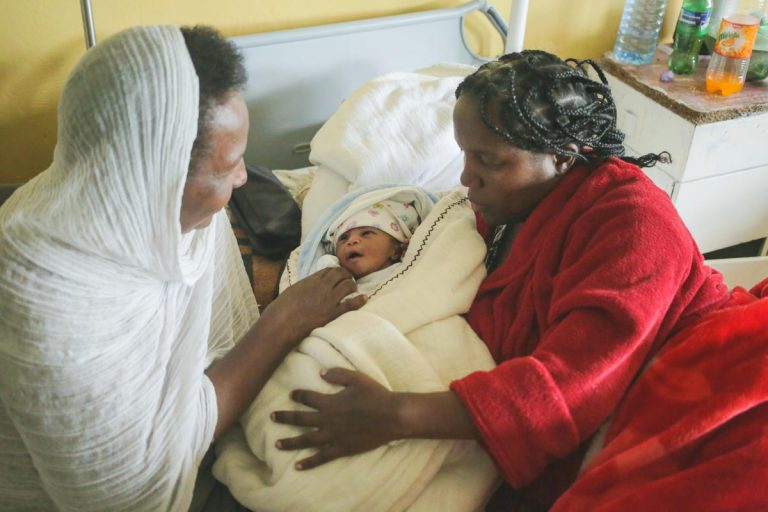This blog was originally published on USAID’s Health Research Program website here.
By Samira Aboubaker
Neonatal infections including pneumonia, sepsis, and meningitis are responsible for 21% of neonatal deaths annually and were responsible for over 550,000 out of 2.6 million neonatal deaths in 2016.1 Timely and appropriate inpatient care and treatment with effective antibiotics could avert most of these deaths. However, such inpatient care is often not feasible and oftentimes not acceptable to families in resource-limited settings.
Studies in sub-Saharan Africa and South Asia have shown that two thirds or more of families do not accept referral for hospitalization of a young infant with possible serious bacterial infection (PSBI).2 To address this problem, the World Health Organization (WHO) published a guideline, “Managing possible serious bacterial infection in young infants when referral is not feasible”.3 The guideline recommends: i) simplified antibiotic regimens for the treatment of clinically severe infection in primary health facilities where referral is not feasible and ii) optimal treatment of fast breathing PSBI with oral antibiotics among infants under 2 months of age. The guideline is aimed at increasing access to PSBI treatment in sick young infants by offering life-saving treatment at nearby primary health care facilities, so that families who cannot go to a hospital still have access to care.
Fatimata’s Story
Fatimata was just three weeks old when she started experiencing high body temperature, rapid breathing, and the inability to breastfeed. Her parents rushed her to the nearest health facility in their rural village in Niger where the health care provider suspected she may have possible serious bacterial infection (PSBI) and referred the family to the district hospital. Her parents could not take her to the hospital. The health care provider advised the parents on the importance of referral but since they were not willing to go to the district hospital, the provider used the guidelines on the management of sick young infants with PSBI when referral is not feasible and gave Fatimata a simplified antibiotic regimen with oral amoxicillin and gentamicin. Fatimata was lucky to access the treatment and survive but many infants die from such a treatable condition because healthcare providers are not widely knowledgeable about simplified treatment regimens when infants cannot reach a hospital.
Managing PSBI
Successful management of PSBI in young infants relies on early identification of sick young infants, timely care-seeking from an appropriate health care provider, and treatment with simplified antibiotic regimens at the primary care level. The implementation of these interventions must take place within the continuum of care across levels of the health system and within existing maternal, newborn and child health strategies and national plans. Integrated Management of Newborn and Childhood Illness (IMNCI) has provided the platform for management of PSBI in young infants when referral is not feasible. IMNCI training packages and tools have to be updated to include the new recommendations on PSBI when referral is not feasible.
Antenatal care and postnatal care services offer opportunities for empowering families on home care practices, including recognition of signs of illness and timely care-seeking. Home visits by community health workers have an important role to play in the management of PSBI and can reduce deaths of newborns in high mortality settings by 30-61%.4 Community Health Workers are key in identifying sick young infants in the community, teaching families how to recognize signs of illness, encouraging them to seek care from a health care provider, and following up on treatment advice. Therefore, it is important to strengthen and implement policies on home visits and ensure that the training, supervision and mentorship of these health workers include PSBI management.
Improving Quality of Care
Greater attention is being paid to improving the quality of care. There is scope for integrating PSBI into WHO standards for improving quality of maternal, newborn and child care. Standards require that all children and their families are provided with educational, emotional, and psychosocial support that is sensitive to their needs and strengthens their capacity. It also states that every child should receive evidence-based care and management of illness, per WHO guidelines.
In conclusion, in countries with high newborn and young infant mortality rates, PSBI should be part of the national essential newborn care package, and fully integrated into IMNCI. As countries move toward ending preventable newborn deaths, there is a need to maximize the multiple opportunities for integrating PSBI in maternal, newborn and child health services. Innovations, learning by doing, and the will to be opportunistic in delivering integrated services should be our way forward.
Visit our PSBI Community of Practice page to learn more.
